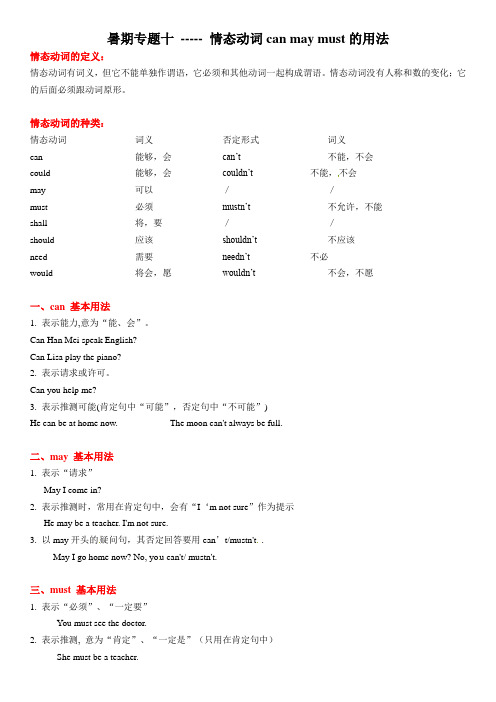五升六英语语法资料图文稿
五六年级小升初小学英语语法+66页

第一章词类一、概念:根据词的形式、意义及其在句中的作用将词分为若干类,叫做词类。
二、分类(10类):1:实词(有实义)①名词(noun,缩写为n.)是人和事物的名称。
pen(钢笔),English(英语),life(生活)。
②代词(pronoun,缩写为pron.)是用来代替名词、数词的词。
we(我们),his(他的),all(全部)。
③动词(verb,缩写为v)表示动作和状态的词。
write(写),eat(吃),sing(唱歌)。
④形容词(adjective,缩写为adj.)用来修饰名词或代词,表示人或事物的特征。
great(伟大的),honest(诚实的),difficult(困难的)。
⑤副词(adverb,缩写为。
adv.)是修饰动词、形容词和副词的词。
quickly(快),often(经常),very(很)。
⑥数词(numeral,缩写为num.)是表示"多少"和"第几"的词。
four(四),eighteen(十八),first(第一),eighth(十八),hundred(百),thousand (千)2:虚词(没有实义)①介词(preposition,缩写为prep.)说明词与词之间关系的词。
from(从),in(在…内),between(在…之间)②连词(conjunction,缩写为conj.)是连接词与词或句与句的单词。
and(和),because(因为),but(但是)。
③冠词(article,缩写为art.)用在名词前,说明名词的意义。
a,an(一个),the(这,那)。
④感叹词(interjection,缩写为int.)表示喜怒哀乐感情的词。
oh(噢),aha(啊哈),hi(嗨)。
[注]不少词可以属于几个词类,如work(工作;动词和名词),fast(快;形容词和副词),since(自从;连词和介词)等。
词类记忆口诀:英语十类词,一定要记住。
小学英语语法知识点汇总图文稿

小学英语语法知识点汇总集团文件发布号:(9816-UATWW-MWUB-WUNN-INNUL-DQQTY-小学英语语法知识点汇总一、名词复数规则1. 一般情况下,直接加-s,如:book-books,bag-bags,cat-cats,bed-beds2. 以s.x.sh.ch结尾,加-es,如:bus-buses,box-boxes,brush-brushes,watch-watches3. 以“辅音字母+y”结尾,变y为i,再加-es,如:family-families,strawberry-strawberries4. 以“f或fe”结尾,变f或fe为v,再加-es,如:knife-knives5. 不规则名词复数,如:man-men,woman-women,policeman-policemen,policewoman-policewomen,mouse-micechild-childrenfoot-feet,.tooth-teethfish-fish,people-people,Chinese-Chinese,Japanese-Japanese?二、一般现在时1. 一般现在时表示经常或习惯性的动作,也可表示现在的状态或主语具备的性格和能力。
2. 一般现在时中,没有be动词和情态动词,主语为第三人称单数的肯定句,动词要按规则加上s,主语是非第三人称单数的肯定句,动词用原形。
3. 在一般现在时中,句中有be动词或情态动词时,否定句在be动词和情态动词后加not,一般疑问句将be动词或情态动词放在句首。
4. 在一般现在时中,句中没有be动词或情态动词时,主语为第三人称单数的否定句在动词前加does+not(doesn’t),一般疑问句在句首加does,句子中原有动词用原形;主语为非第三人称单数,否定句用do+not(don’t),一般疑问句在句首加do,句子中动词用原形。
动词+s的变化规则1.一般情况下,直接加-s,如:cook-cooks,milk-milks2.以s.x.sh.ch.o结尾,加-es,如:guess-guesses,wash-washes,watch-watches,go-goes3.以“辅音字母+y”结尾,变y为i,再加-es,如:study-studies三、现在进行时1. 现在进行时表示现在正在进行或发生的动作,也可表示当前一段时间内的活动或现阶段正在进行的动作。
小学英语语法时态讲解与归纳图文稿

小学英语语法时态讲解与归纳集团文件发布号:(9816-UATWW-MWUB-WUNN-INNUL-DQQTY-小学英语语法时态讲解与归纳小学英语语法时态讲解与归纳—一般现在时一. 意义:表示经常发生的事情,动作或存在的状态二. 构成及变化1.be动词的变化。
肯定句:主语+be(am,is,are)+其它。
如:I am a boy.我是一个男孩。
否定句:主语+ be + not +其它。
如:He is not a worker.他不是工人。
一般疑问句:Be +主语+其它。
如:-Are you a student -Yes.I am. / No, I'm not.特殊疑问句:疑问词+一般疑问句。
如:Where is my bike?2. 行为动词的变化。
l当主语为第一,二人称及复数时,助动词为do肯定句:主语+动词原形(+其它)。
如:We often play basketball after school.否定句:主语+ don't+动词原形(+其它)。
如:we don’t play basketball after school.一般疑问句:Do +主语+动词原形+其它?如: Do you often play basketball after school l Yes, we do. / No, we don't.特殊疑问句:疑问词+以do开头的一般疑问句如: What do you often do after schooll当主语为第三人称单数时 ,助动词为does肯定句:主语+动词三单式(+其它)。
如: He swims well.否定句:主语+ doesn’t+动词原形(+其它)。
如:He doesn’t swim well..一般疑问句:Does +主语+动词原形+其它。
如:Does he swim wellYes, he does. / No, he doesn't.特殊疑问句:疑问词+以does开头的一般疑问句如: How does your father go to work?三.第三人称单数的动词变化规则(只有在第三人称为主语的肯定句中,动词才用三单式)(1)多数动词直接加s:Runs gets likes collets takes plays climbs…….(2)结尾是s, x, sh, ch, o,前为辅音字母,结尾加es :Watches teaches goes does washes crosses mixes brushes (3)动词末尾y前为辅音:将y改为i加es: study→studies fly→flies carry→carries cry→cries但在y前如果为元音则直接加s: buys says四.时间标志:always , usually , often , sometimes ,every…现在进行时一.意义——当表示现在正在进行的动作或正在发生的事。
小学阶段英语语法大全!20张图,彻底分清英语中的主、谓、宾

第一:语法分析图下图为一个复合句中,所有的句子成分,先了解一下~第一:英语中的“主语”1. 主语的含义:主语即“动作的发出者”(主谓宾结构中)或者“表述的对象”(主系表结构中),一般放在句首,有时也放在中间或者句尾。
充当主语的可以是名词、代词;也可以是短语、不定式;甚至可以是整个句子。
所以,在找主语的时候,脑子里一定要有这些认知。
2. 充当主语的有哪些?(1)名词/代词/数词做主语(2)不定式/名词化短语做主语(3)从句做主语(即主语从句)从句做主语的句子,就是我们学过的“主语从句”。
主语从句可以由连词that/whether引导;也可以由关系代词what/who/which引导;还可以由连接副词how/when/why/where引导。
详情如下:(4)有时为了避免头重脚轻经常会借助“it”充当形式主语,而真正的主语则放在句尾:(5)“There be …”句型“there be…”比较特殊。
在这种句型中,主语的位置在中间。
比如:There are six beautiful French ladies walking on the street.大街上有六位漂亮的法国女郎在散步。
第二:英语中的“谓语”1. 含义:谓语是句子的灵魂,主要用来“陈述主语的状态”或者“表明主语发出的动作”。
2. 分类:简单谓语复合谓语(1)简单谓语:由一个动词或者一个动词短语构成谓语;I love my girlfriend.我爱我的女朋友。
My boss stayed up late last night.我的老板昨晚熬夜了。
(2)复合谓语:① 情态动词/助动词+动词构成② 系动词+表语构成③ 情态动词+系动词:第三:英语中的“宾语”含义:宾语与主语相对,表示动作的承受者。
名词、代词、数词以及句子都可以做宾语(宾语从句)。
(1)直接宾语&间接宾语/代词做宾语/名词做宾语(2)数词/从句做宾语。
副本六年级英语语法示意图1

1、主+is+宾 2、单数主语+v-es+宾 3、主+情态动词+v+宾
1、主+are+宾 2、主+v+宾 3、主+情态动词+v+宾 主+is+v-ing+宾 主+are+v-ing+宾
1,主+are+going to+v+宾 2,主+will+v+宾
2,主+will+v+宾
小 学 阶 段 英 语 语 法 总 会
一般过去时 时 态 第三人称 句 1、主+was+宾 子 主 结 2、主+v-ed+宾 构 第一二人称 1、主+were+宾 2、单数主语+v-es+宾 3、主+情态动词+v+宾 2、主+v-ed+宾 4、祈使句 1、主+is not+宾 1、主+was not+宾 否 定 句 2,主+did not +v+宾 2,主+did not +v+宾 4、do not+祈使句 一 1、was+主+宾 般 疑 问 2、did+主+v+宾 句 1、yes,主+was+宾 1、is+主+宾 1、were+主+宾 2、does+单数主语+v+宾 3、情态动词+主+v+宾 2、did+主+v+宾 4、do+祈使句 1、yes/no,主+were+ 宾 1、yes,主+is+宾 1、no,主+is not+宾 1,no,主+was not+宾 1,no,主+were not+ 宾 2、yes,单数主语+v-es+宾 2,no,单数主语+does not+v+宾 2、yes,主+v-ed+宾 2、yes/no,主+v-ed+ 宾 3、yes,主+情态动词+v+宾 4、do+祈使句 1、yes,主+are+宾 1、no,主+are not+宾 2、yes,主+v+宾 2,no,主+do not+v+宾 3、yes,主+情态动词+v+宾 2,yes,主+will+v+宾 3,no,主+情态动词 not+v+ 3,no,主+情态动词 宾 not+v+宾 2,no,主+did not+v+ 宾 2,no,主+did not+v+ 4、yes,祈使句 宾 4、no,do not+祈使句 1、特殊疑问词+is+主+宾 特 1、特殊疑问词+was+主+ 1、特殊疑问词+were+主 +宾 殊 宾 疑 问 句 2、特殊疑问词+did+主 2、特殊疑问词+did+主 ++v宾 +v宾 1、主+was+宾 回 2、主+v-ed+宾 答 1、主+were+宾 2、主+v-ed+宾 4、yes,祈使句 4、no,do not+祈使句 1、特殊疑问词+are+主+宾 1、特殊疑问词+is+主 +going to+v+宾 1、特殊疑问词+are+主+going to+v+宾 no,主+is not+ving+宾 no,主+are not+ving+宾 2,no,主+will not+v+ 2,no,主+will not+v+宾 宾 2,yes,主+will+v+宾 yes,主+is+v-ing+ yes,主+are+v-ing+宾 宾 1,no,主+is not+going to+v+宾 1,no,主+are not+going to+v+宾 1,yes,主+is+going to+v+宾 1,yes,主+are+going to+v+ 宾 2、do+主+v+宾 is+主+v-ing+宾 3、情态动词+主+v+宾 2,will+主+v+宾 2,will+主+v+宾 are+主+v-ing+宾 4、do not+祈使句 1、are+主+宾 1,is+主+going to+v+ 宾 1,are+主+going to+v+宾 1、主+were not+宾 2、单数主语+does not+v+宾 2、单数主语+do not+v+宾 主+is not+v-ing+ 主+are not+v-ing+宾 宾 3、主+情态动词 not+v+宾 3、主+情态动词 not+v+宾 2,主+will not+v+宾 2,主+will not+v+宾 4、祈使句 1、主+are not+宾 1,主+is not+going to+v+宾 1,主+are not+going to+v+ 宾 2、主+v+宾 主+is+v-ing+宾 3、主+情态动词+v+宾 2,主+will+v+宾 2,主+will+v+宾 主+are+v-ing+宾 第三人称 1、主+is+宾 第一二人称 1、主+are+宾 1,主+is+going to+v+ 宾 1,主+are+going to+v+宾 第三人称 第一二人称 第三人称 第一二人称 一般现在时 现在进行时 一般将来时
【提优拔尖】小学英语五升六暑假讲义专题十 ---- 情态动词can may must的用法

暑期专题十----- 情态动词can may must的用法情态动词的定义:情态动词有词义,但它不能单独作谓语,它必须和其他动词一起构成谓语。
情态动词没有人称和数的变化;它的后面必须跟动词原形。
情态动词的种类:情态动词词义否定形式词义can 能够,会can’t 不能,不会could 能够,会couldn’t 不能,不会may 可以//must 必须mustn’t 不允许,不能shall 将,要//should 应该shouldn’t 不应该need 需要needn’t 不必would 将会,愿wouldn’t 不会,不愿一、can 基本用法1. 表示能力,意为“能、会”。
Can Han Mei speak English?Can Lisa play the piano?2. 表示请求或许可。
Can you help me?3. 表示推测可能(肯定句中“可能”,否定句中“不可能”)He can be at home now. The moon can't always be full.二、may 基本用法1. 表示“请求”May I come in?2. 表示推测时,常用在肯定句中,会有“I‘m not sure”作为提示He may be a teacher. I'm not sure.3. 以may开头的疑问句,其否定回答要用can’t/mustn't .May I go home now? No, yo u can't/ mustn't.三、must 基本用法1. 表示“必须”、“一定要”You must see the doctor.2. 表示推测, 意为“肯定”、“一定是”(只用在肯定句中)She must be a teacher.3. 否定句中mustn’t表示“禁止”“不允许”You mustn’t smoke here.4. 以must开头的疑问句,其否定回答要用needn’t/don't have to.Must I clean the room? No, you needn't/ don't have to.四、can / may /must 表示推测的用法1. can 肯定句中,翻译为“可能”,否定句中“不可能”;2. may 肯定句中,翻译为“可能”,否定句中,翻译为“可能不”;3. must 肯定句中“一定是”记忆口诀:一肯(must),一否(can't),二不定(can / may)情态动词专项练习1. The children ______ play football on the road.A. needn'tB. canC. mustn'tD. must2. —Must I do my homework at once? —No, you ______.A. needn'tB. mustn'tC. can'tD. may not3. There's no light on. They ______ be at home.A. can'tB. mustn'tC. needn'tD. shouldn't4. —Must we finish all these articles tonight? — No, you __________.A. mustn’tB. haven’tC. not have toD. don’t have to5. How dirty the tables are! They need ________. (23届新课标模拟五级)A. to cleanB. cleanC. cleaningD. cleaned6. The children ____ play football on the road. (23届新课标模拟五级)A. can'tB. canC. mustn'tD. must7. --- You ___ park here!Look at the sign, it says “”No parking.--- Sorry, I didn't notice that sign just now. (23届新课标五级)A. won'tB. needn'tC. mustn'tD. couldn't8. We ____ pay to get into the concert. It's free. (22届新课标南京五级)A. can'tB. mustn'tC. might notD. don't have to9. --- Look, someone left a book.--- Oh, yeah ... This book _____ be Kitty's. Only she likes to read this kind of books. (22届新课标模拟五级)A. canB. mustC. mayD. might10. He isn't at school. I think he ____ be ill. (23届新课标模拟五级)A. canB. shallC. mustD. has to11. You'd better _____ late next time. (23届新课标模拟五级)A. not to beB. not beC. won't beD. don't12. --- Must I return the book tomorrow?--- No, you ______. You can keep it longer. (23届新课标南京五级)A. may notB. can'tC. needn'tD. mustn't13. --- I have oined the health club. How long do you think it will t ake me to lose ten pounds?--- In fact, I think you ____ lose weigh t step by step. (24届新课标南京五级)A. had betterB. would ratherC. prefer toD. even14. --- Sally still hasn't found her cat.--- I'm sorry to hear that. She ____ be very sad. (24届新课标五级)A. needB. shouldC. mustD. can15. --- He drives people to places. He's got a taxi.--- He _____ be a doctor. He _____ be a driver. (20届新课标五级)A. can't; canB. must; can'tC. can't; mustD. mustn't; must16. We ____ pay to get into the concert. It's free. (21届新课标五级)A. can'tB. mustn'tC. might notD. needn't17. --- Excuse me,, may I keep the book a little longer?--- Sorry, you________ return it today. (21届新课标五级)A. mustB. mustn'tC. canD. can't二、用适当的情态动词填空1. Must I borrow the book with my ID card? No, you ________.2. ________ I use your car? Yes, you ________.3. ________ I go home now? No, you _________ stay here.4. My mother is ill. I _________ stay at home and look after her.5. ________ you like some tea?6. You ________ take more exercise.7. ________ you tell me how to get to the Qingyun Park?8. The clock ________ tell us the time.9. ________ you like to go fishing with me?10. ________ we play football this afternoon?11. Must I stand up? No, you ________.12. ________ I speak something? Yes, you ________.13. ________ I leave the park now? No, you _________ stay here.14. My grandmother is ill. I _________ stay at home and look after her.15. ________ you like some juice?16. They ________ take more exercise.17. ________ you tell me the way to the museum?18. The watch ________ tell us the right time.19. ________ you like to go boating with us?20. ________ we play chess next weekend?三、按要求改写句子。
五升六英语

PEP五年级下册知识点总结
• 重点词汇
• 1.吃早饭 eat/ have breakfast • 3. 进行体育运动 play/ do sports • 5. 吃晚饭 eat/ have dinner • 7. 散步 go for a walk • 9. 上舞蹈课 take a dancing class 2. 上……课 have…class 4. 做早操 do morning exercises 6. 打扫我的房间 clean my room 8. 去买东西、购物 go shopping 10. 听起来好像 sound like
• 11. 吃午饭 eat/ have lunch swimming • 13. 午前,上午 a.m. • 15. 通常 usually • 17. 起床 get up • 19. 有时 sometimes
12. 去游泳 go 14. 午后,下午 p.m. 16. 西班牙 Spain 18. 上床睡觉 go to bed 20. 昨晚 last night
2、以s、x、sh、ch结尾的词加-es。如: watch-watches box-boxes
3、以元音字母加f或fe结尾的,变f或fe为v加 es
4、辅音字母+y→y变i,加es
5、以o结尾,有生命+es,无生命+s
• 5.That sounds like a lot of fun. 那听起来好像很有趣。
• 6. But I also hard-working. I usually wash my clothes. Sometimes I cook dinner. • 但我也很勤劳 you shopping today? 今天为什么是你购物? • – My mum worked last night. So I’m shopping today. 我妈妈昨晚上班了。所以今天我购物。
五升六英语短期语法专题

五升六语法专辑英语基础语法课程练习册1. 语法:一般现在时Warming-up表示经常的,习惯性的动作,常与表示频率的时间副词连用。
1. 表示经常性或习惯性的动作:I get up at six every day.2. 表示事物和人物的特征.状态:The sky is blue.3. 表示客观事实:The earth goes around the sun.关键词:day once, twice, three timesyear four times a weekmonth on Saturdaysevery week on Sundaysmorningafternoonevening句型:1. be 动词的变化肯定式:He is a teacher.否定式:He is not a teacher.一般疑问句:Is he a teacher? -Yes, he is. / No, he isn't.特殊疑问句:What is he?2. 行为动词的变化肯定式:I like pork. 第三人称单数:He likes pork.否定式:I don't like pork. 第三人称单数:He doesn't like pork.一般疑问句:Do you like pork? 第三人称单数:Does he like pork?-Yes, I do. / No, I don't. –Yes, he does. / No, he doesn't.特殊疑问句:What do you like? / What does he like?课堂巩固一. 将下列动词改为第三人称单数形式。
Model: do→ does1. fly _______2. skip _______3. play _______4. wash _______5. go _______6. watch _______7. study _______8. swim _______9. skate _______二. 用所给动词的适当形式填空。
- 1、下载文档前请自行甄别文档内容的完整性,平台不提供额外的编辑、内容补充、找答案等附加服务。
- 2、"仅部分预览"的文档,不可在线预览部分如存在完整性等问题,可反馈申请退款(可完整预览的文档不适用该条件!)。
- 3、如文档侵犯您的权益,请联系客服反馈,我们会尽快为您处理(人工客服工作时间:9:00-18:30)。
五升六英语语法资料文件管理序列号:[K8UY-K9IO69-O6M243-OL889-F88688]
宝贝梦想空间五升六英语语法辅导资料
一、请写出下列词的复数形式。
city _____ zoo ______country _____ tooth____ mouse _ _
boy_____ broom ______ car __ tree ______horse ______ bus_____ fox _____ branch ____ baby _____ family _____ dish _____ radio _____ photo _____ piano ____ knife_____ leaf _____ life _____ thief _____ man _____ woman ___ __ child __ _ foot this _________ watch______ diary________ day____________
book____________ dress____________ sheep___________ tea_____ box___________ strawberry_________ peach__________ sandwich__________ paper_________ juice__________
water____________ milk__________ rice_________ people fish___________
CD ox___________ deer____________
二、单项选择
( )1. The __ in our yard are very beautiful.
A. cloth
B. water
C. flowers
( )2. Tom is one of the Chinese _____ in our school.
A. boy
B. boys
C. boies
( )3. A cat has four ____ , doesn't it
A. foots
B. feet
C. feets
( )4. There are three ____ and five _____ in the room.
A. American, Japanese B Americans, Japanese C. American, Japanese
( )5. Can you see nine ____ in the picture
A. fish
B. book
C. horse
( )6. The _____ has two______.
A. boy; watch
B. boy; watches
C. boys; watch
( )7. The _____ are flying back to their country.
A. Germany
B. Germanys
C. Germans
( )8. The girl brushes her _____ every day before she goes to bed.
A. tooths
B. teeth
C. teeths
( )9.I saw many _____ in the street.
A. peoples
B.people
C.people’s
( )10.The green sweater is his _________.
A.brother
B.brothers
C.brother’s
三、选择填空
( )1. They come from different ______
A. country
B. countries
C. a country
D. countrys ( )2. How many ______ do you see in the picture
A. tomatos
B. tomatoes
C. tomato
D. the tomato ( )3. They are______.
A . woman teachers B. women teachers
C. women teacher
D. woman teacher
( )4. Would you like _______ ,please
A. two glass of water
B. two glasses of water
C. two glass of waters
D. two glasses of waters
( )5. Most of ______ live in _______.
A. Germans, German
B. German, Germen
C. Germen, Germany
D. Germans, Germany
( )6. There are some ______ in these _______.
A. knifes pencil-boxes
B. knives pencils-box
C. knives pencil-box
D. knives pencils-boxes
( )7. ______ like ______ by air.
A. Greens, travelling
B. The Green, traveling
C. The Greens, travel
D. The Greens, traveling
( )8. I wonder why ______ are interested in action films(武打片).
A. the people
B. people
C. peoples
D. the peoples ( )9. There is no ______ in the plate.
A. apples
B. oranges
C. rice
D. eggs
( )10.My uncle has three _______.
A.child
B.childs
C.children
D.childrens
四.填入所给名词的正确形式
1. I have two____________. (knife)
2. There are many ___________ here. (box)
3. There are many ___________ on the road. (bus)
4. A few ___________ are drawing on the wall. (boy)
5.The ______________ are playing football now. (child)
6.Please take two _______________ for me. (photo)
7.I like the red ________________.(tomato)
8.Would you please clean your _____________ now (tooth)
9.Do you want some _________ (milk)
10.There are ten ___________________in our school. (woman teacher)
答案:
一、请写出下列词的复数形式。
cities zoos countries teeth mice boys brooms cars trees horses buses foxes branches babies families dishes radios photos pianos knives leaves lives thieves men women children feet these watches diaries days books dresses sheep teas boxes strawberries peaches sandwiches papers juice water milk rice people CDs oxen deer fish
二、单项选择
1.C
2.B
3.B
4.B
5.A
6.B
7.C
8.B
9.B 10.C
三、选择填空
1.B
2.B
3.B
4.B
5.D
6.D
7.D
8.B
9.C
10.C
四
填入所给名词的正确形式
1. knives
2.boxes
3.buses
4.boys
5.children
6.photos
7.tomatoes
8.teeth
k
10.women teachers。
